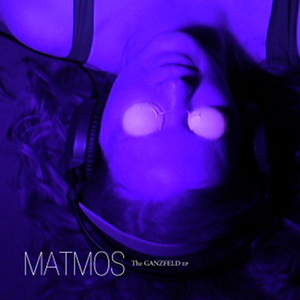Matmos The Ganzfeld EP
When toying with the more stridently unorthodox side of the musical spectrum, many artists run […]

When toying with the more stridently unorthodox side of the musical spectrum, many artists run afoul of accessibility in their effort to accomplish something unique; concept can suffocate the heart of a piece, resulting in something that’s more academic than expressive. That said, Baltimore duo Matmos (consisting of M.C. Schmidt and Drew Daniel) seems to have no problem navigating those difficult waters; no stranger to the experimental, the outfit consistently turns highfalutin concepts into potable compositions. For The Ganzfeld EP, Matmos literally spent years conducting parapsychological experiments to create its source material; the utterances of its subjects were transcribed for later investigation and reproduction—a strategy with roots in the musique-concrète style that has pervaded the group’s sound and philosophy throughout its career. Such a lofty idea seems likely to keep the majority of listeners at arm’s length, but Matmos still manages to demonstrate that conceptual art need not be unapproachable.
A ganzfeld experiment consists of providing a subject with unified stimulation—headphones playing white noise, goggles that diffuse light into a single color—the result being altered consciousness and, oftentimes, hallucinations. Nearby, another participant attempts to guide those hallucinations by thinking about a shape or a color, the idea being to test the subject for telepathic abilities. Matmos conducted many sessions like this while trying to infuse subjects with “the concept of the new Matmos record,” garnering the duo a bevy of material to work with. (Incidentally, it also presented a marketing opportunity to sell ganzfeld goggles and headphones, which are available with deluxe configurations of the EP).
“Very Large Green Triangles” starts the EP off with a vocal from one of the ganzfeld sessions, cementing the place of the human voice as instrument, motif, and influence for these pieces. What begins as an ominous and cinematic affair quickly shifts, taking notes from the pair’s adopted hometown and aligning a stereotypical Baltimore-club rhythm with samples of prepared piano and vocal clips. Though the track never lets up on the club feel, a movie-score quality glides to the forefront as choral vocals and strings build to a frenzy with found-sound percussion. Eventually, this too finds pause, as multiple layers of ganzfeld-induced rants take over the melodic theme in a kind of sprechgesang, each channel playing different vocalizations to a disorienting effect.
Matmos calls on Sandwell District’s RRose for a remix of “You”—an eight-minute minimal-techno cut that ebbs and flows elegantly while retaining a steady, after-hours pulse. Whispers of vocals creep behind a wash of filtered textures, and a rubber-band bass (literally the sound of a plucked rubber band) clods ahead. Though eminently heady, it’s perfectly paced and the atmosphere is immersive.
The conceptual centerpiece, “Just Waves,” consists almost exclusively of ganzfeld-experiment transcripts re-read in an organic monotone by several different performers. It’s jarring to hear human voices doing their best to sound like an expressionless, robotic, vocoded version of themselves, but one has to appreciate the lack of affectation in contrast to the pop-culture abuse of the “Cher effect.” At first, all is cacophony and chaos, but as a drone of frozen tones builds a tense chord, the voices too increase in tension and butt up against each other. The piece almost imperceptibly shifts from movement to movement—guttural murmurs reminiscent of Tuvan throat singing are at one point underlining a grim dirge; at another, they serve as the basis of a churchly chorus. At this point, it wouldn’t be unreasonable for a listener to get the feeling that they were part of a ganzfeld experiment themselves, as patterns emerge at the edge of perception and the individual voices become more infrequent, leaving behind only the sustained presence of an angelic major chord.
As an idea for a record, it is easy to look at The Ganzfeld EP and ridicule the concept, imagining it will just be a jumble of nonsense in a holier-than-thou package, something that will only be enjoyed by the initiated. But to Matmos’ credit, the duo has delivered something that is listenable and enjoyable while sustaining an overarching concept with great capability. Music like this may yet mollify those who have learned to be pessimists when it comes to art with a capital A.

